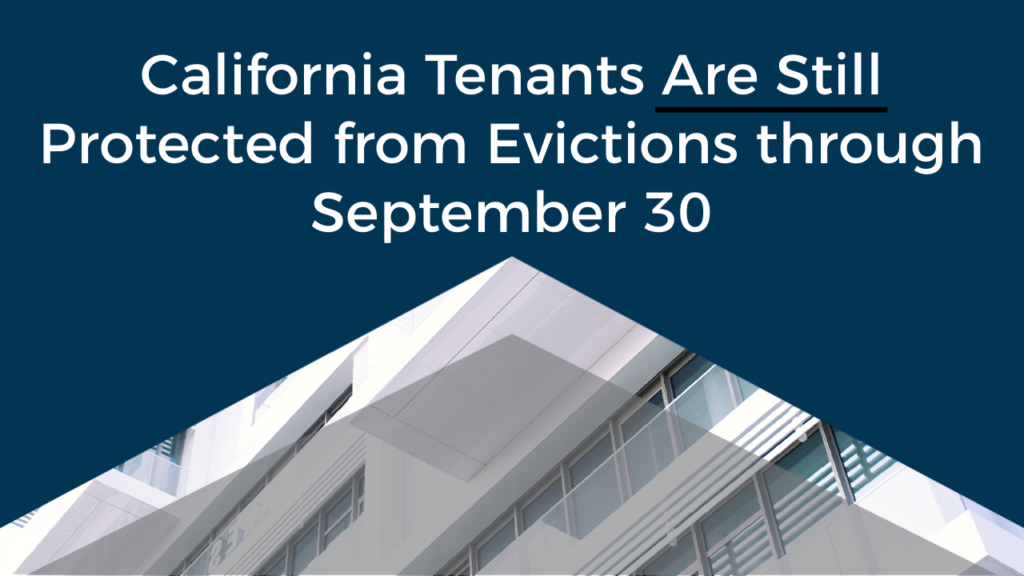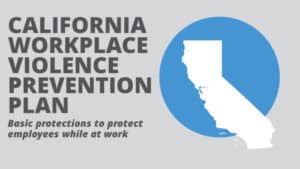Written By Christopher B. Dolan and Katelyn P. Dembowski
Gina from San Francisco asks: What is going to happen now that Congress failed to extend the eviction moratorium? What is California doing to protect tenants during this time?
Dear Gina: These are really pressing questions. On September 4, 2020, the Centers for Disease Control and Prevention imposed a nationwide temporary federal moratorium on residential evictions for the nonpayment of rent. Legislatures in California had done this on a state level a few days prior, protecting California residents from eviction during the COVID-19 pandemic. The CDC federal eviction moratorium was set to expire on July 31, 2021. Congress failed to extend it, leaving millions of Americans vulnerable to evictions starting as early as August 1.
Ultimately, House Democrats did not have the votes they needed to extend the moratorium, and Congress adjourned for a seven-week recess (they are expected to be back September 20). The Biden administration is unable to extend the moratorium through executive action, citing a recent court ruling for their lack of power. The Supreme Court held, in a case by landlords against the federal government, that the CDC’s eviction moratorium was beyond their scope of authority as a federal agency. Unfortunately, the end of the eviction moratorium will leave roughly 3.6 million people in the U.S. on the brink of eviction in the next two months, according to the U.S. Census Bureau’s Household Pulse Survey.
On June 28, 2021, California Governor Gavin Newsom signed AB 832 to extend the state’s eviction moratorium through September 30, 2021. This is the third, and likely final, time he has extended the eviction moratorium in California.
In addition to extending the moratorium, the legislation cleared rent debt for low-income Californians who have suffered hardships during the pandemic. AB 832 will also cover 100% of past-due and prospective rent payments, as well as utility bills, for income-qualified tenants from April 2020 through September 2021.
Here’s how to protect yourself as the eviction moratorium comes to an end:
- If your landlord gives you a notice to “pay or quit,” you cannot be evicted if you return a Declaration of COVID-19 Related Financial Distress. You must return the declaration to your landlord within 15 business days of receiving the notice to “pay or quit.” If you do not provide the signed declaration within 15 business days, an eviction proceeding may be filed against you. If you are unable to provide the declaration to your landlord within 15 business days, you may still submit the declaration to the court, provided you have “good reasons” for not providing it within the 15 days. This includes, but is not limited to, mistakes, inadvertence, surprise, or excusable neglect under the California Code of Civil Procedure.
- Under AB 832, to be eligible for cleared rent debt, tenants must earn 80% or less of the area median income, which varies for each county within the state. To put that into perspective, San Francisco’s median income in 2019 was $96,265. You would need to earn $77,012 or less to qualify for the additional assistance through AB 832.
- If you make more than the median income and are ineligible for rent debt clearance, you are still protected from eviction if you pay at least 25% of what you owe your landlord by September 30, 2021.
- If your household income is more than 130% of the median household income in your county or more than $100,000, your landlord may demand proof of your COVID-19 related hardships be provided to support your declaration. This could be satisfied by tax returns, pay stubs, statements from your employer, etc.
- Until October 1, 2021, a landlord can only evict a tenant if they provide a legally valid reason. For example, you may still be evicted during the moratorium if you break your lease agreement, do something illegal on the property, or the landlord must do necessary renovations. The moratorium is only for past-due rent payments.
The extension of the eviction moratorium in California should give tenants some breathing room as the pandemic goes on. The surge in the COVID-19 Delta variant could potentially be as bad as when the pandemic started. While these are the guidelines in place right now, changes are happening every week, day, and hour, as we have seen throughout the pandemic. Stay safe and keep informed as we continue to navigate this pandemic together.
***
Disclaimer: The COVID-19 (Coronavirus) outbreak is an ongoing, rapidly developing situation and the local, state, and federal responses are changing regularly. The Dolan Law Firm takes efforts to keep the information on this page updated, however, to guarantee up to date information it is necessary to confirm with publicly-available federal, state and local health organization guidance and government mandates.










